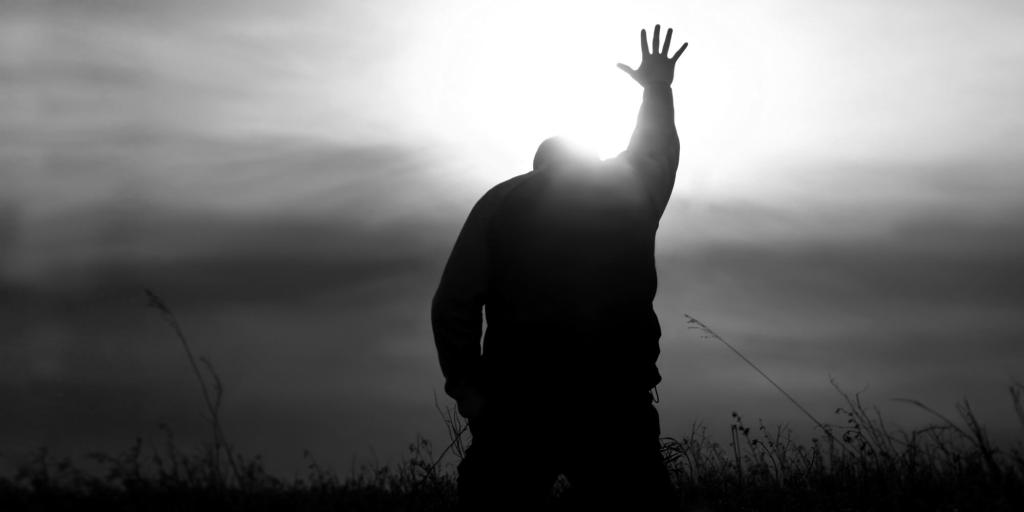
An Increasingly Wicked Society?
Wickedness and its synonyms, such as evil, perverse, immoral, sinful, and abominable, are intense words that don’t usually appear in the daily news or everyday conversation. However, the Bible uses them hundreds of times to describe thoughts, attitudes, words, and behaviors that God forbids. What will come of these things increasing—and even being accepted and celebrated—in the United States and other countries?
Oxford Languages defines wicked as “evil or morally wrong” and evil as “profoundly immoral and wicked.” Biblically, wickedness is likened to sin, unrighteousness, and evil—in other words, everything that goes against God’s definition of good, what the Bible calls righteousness (Psalm 119:172). Psalm 45:7 tells us that God loves righteousness and hates wickedness.
Sadly, mankind’s history is full of periods of profound wickedness and atrocities. One well-known example of a particularly wicked state of mankind was during Noah’s day, as described in Genesis 6:5, which led God to bring worldwide punishment by a flood: “Then the Lord saw that the wickedness of man was great in the earth, and that every intent of the thoughts of his heart was only evil continually.”
Many societies are experiencing a rapid increase in the amount and severity of wickedness in nearly all its forms—as many polls quantify, articles describe, and firsthand accounts testify. This isn’t surprising—Jesus prophesied that the end times would be like the “days of Noah” (Luke 17:26). Violence, greed, corruption, collusion, lying, brutality, perversion, sexual immorality in many forms, and other sins are seemingly more accepted and commonplace than ever. What’s more disturbing is the fact that more and more forms of wickedness are officially and openly being embraced, celebrated, and promoted by influential organizations of media, business, entertainment, medicine, education, and government in their ads, products, policies, laws, curriculums, and missions.
As disturbing as the increase in wickedness is now, worse is on the horizon. The movement to decriminalize “sex work” is gaining ground as activists and politicians advocate for such laws, including support from Vice President Kamala Harris. Polyamory, so-called “ethical non-monogamy” or the practice of openly having multiple romantic partners, is on the rise. The line between abortion and infanticide seems to be smudging. Even worse will likely follow, including practices such as pedophilia, incest, and bestiality, along with more extreme and open forms of racism, hatred, greed, corruption, theft, and violence—including mass shootings—because wickedness always grows in prevalence and severity unless actively repented of.
Perhaps many would scoff at the idea of more extreme wickedness like infanticide, prostitution, rape, pedophilia, incest, and bestiality becoming more open, legalized, and accepted in our “modern” society. But the sobering fact is that many of these behaviors already occur and are more accessible than ever through the Internet—and many of them are becoming more prevalent. These “extreme” forms of wickedness have existed throughout history, evidenced by the fact that God specifically forbade many of them (cf. Leviticus 18; Exodus 20:13–14; Proverbs 23:27–28; Mark 9:42). Some wicked behaviors God specifically forbade because surrounding societies were practicing them and He didn’t want His people to succumb to the same evil (Leviticus 18:3, 24–29).
What are the effects in real people’s lives from the soaring wickedness all around us? Almighty God prohibited certain behaviors because they lead to pain, suffering, disease, and death. The tragic consequences of growing wickedness will be widespread and will include broken families and ruined societies, strife and resentment, widespread corruption—and, perhaps most sobering, the wrath of God.
Why can’t human beings, individually and collectively, escape and resist the temptation to act wickedly? The primary reason is that “the whole world lies under the sway of the wicked one,” one of the titles of the devil (1 John 5:19; Ephesians 6:16). It is heartbreaking to see so much of humanity fall prey to the devil’s wicked deceptions.
Wickedness isn’t a pleasant word, but it is increasingly one of the most apropos words to describe society. It is vital to recognize wicked thoughts, words, actions, and movements—and to call them what God calls them.
Although God condemns sin, He also provides the solution, which is exactly the same one that Jesus preached at the beginning of His ministry: repentance, meaning a deep, sincere, wholehearted change. Drastic change is needed in many societies around the world because God does not take wickedness lightly and wickedness that isn’t repented of brings punishment. “I will punish the world for its evil, and the wicked for their iniquity” (Isaiah 13:11).
May God’s words through His servant David cut to the receptive hearts all across the United States and other lands: “Oh, let the wickedness of the wicked come to an end” (Psalm 7:9).
Jesus and His apostles brought the good news message about a better world to come. You can start preparing for that world in your life now. Order the free booklets What Is a True Christian and Do You Believe the True Gospel? today.
Stay up to date with our Weekly Digest Email!
Tomorrow's World ComMentary Podcast
Subscribe to Tomorrow's World Commentary podcasts on iTunes and Google Play!



